THE LIVING TAO : TIMELESS WISDOM FOR THE MODERN WORLD
This is a podcast dedicated to exploring the profound, yet elusive True Tao (真道). Acknowledging that the essence of Tao is beyond traditional discourse and expression, this series seeks to demystify Taoist principles and adapt them for contemporary listeners. Each episode offers a blend of ancient wisdom and modern insights, providing practical guidance for navigating the complexities of today’s world. Whether you’re a seasoned practitioner or new to the path, join us in discovering how the timeless wisdom of Tao can be lived out in the here and now.
Episodes
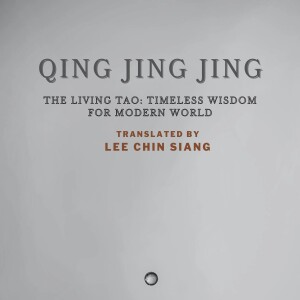
Friday Nov 08, 2024
Friday Nov 08, 2024
This Podcast presents an English translation of the Qing Jing Jing, a significant Taoist text, attributed to Laozi, though its authorship is debated. The translation aims to make the text accessible to English speakers, using clear and simple language. It includes a preface explaining the translation's origin and purpose, biographical information on Laozi and the translator, and the Qing Jing Jing text itself, divided into two parts. The core theme revolves around achieving spiritual purity and stillness through the elimination of desire, ultimately leading to a state of harmony with the Tao. The text emphasizes practices of inner observation and letting go of attachment to achieve this state of enlightenment.
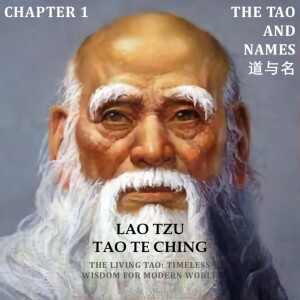
Sunday Nov 10, 2024
Sunday Nov 10, 2024
This Chapter is a Taoist commentary on the Tao Te Ching, specifically focusing on the concepts of "Tao" (道) and "Ming" (名). It argues that the true Tao, representing the fundamental reality before all things, is inexpressible and beyond human language. Similarly, true names, existing before the creation of the universe, are also intangible. The text contrasts these primordial states with human attempts to name and describe reality, highlighting the limitations of human perception and the importance of a clear, desire-free mind to grasp true understanding. Ultimately, it emphasizes the mystery and unknowability of the Tao.
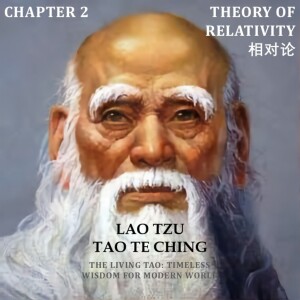
Sunday Nov 10, 2024
Sunday Nov 10, 2024
This Chapter is a Taoist commentary on the Tao Te Ching, specifically focusing on the concepts of "Tao" (道) and "Ming" (名). It argues that the true Tao, representing the fundamental reality before all things, is inexpressible and beyond human language. Similarly, true names, existing before the creation of the universe, are also intangible. The text contrasts these primordial states with human attempts to name and describe reality, highlighting the limitations of human perception and the importance of a clear, desire-free mind to grasp true understanding. Ultimately, it emphasizes the mystery and unknowability of the Tao.
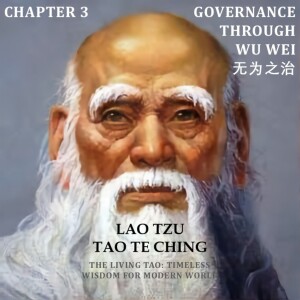
Sunday Nov 10, 2024
Sunday Nov 10, 2024
The Chapter presents excerpts from Lao Tzu's Tao Te Ching, specifically Chapter 3, focusing on the concept of Wu Wei (non-action) as a governing principle. It argues that effective governance stems from reducing societal desires for status and wealth, thus preventing conflict and unrest. The sage's role is to guide people toward inner peace and self-sufficiency, fostering a natural harmony that renders cunning schemes ineffective. This approach, emphasizing virtuous simplicity, ensures a well-ordered society without forceful intervention. Ultimately, Wu Wei achieves effective governance through inaction, allowing natural order to prevail.
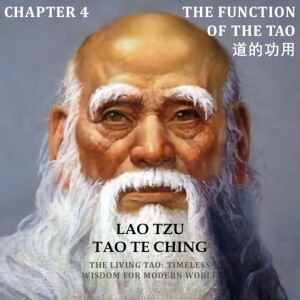
Monday Nov 11, 2024
Monday Nov 11, 2024
This Chapter presents Chapter 4 of the Tao Te Ching, focusing on the Tao's function. The Tao, despite its seemingly boundless and elusive nature, is a source of inexhaustible energy fueling all things. Its power lies in its humility; it avoids competition and instead harmonizes chaos. Its presence is ubiquitous, found in both bright and obscure places, yet its origins remain a mystery, predating even the highest deity. The chapter emphasizes the Tao's profound influence and inherent mystery.
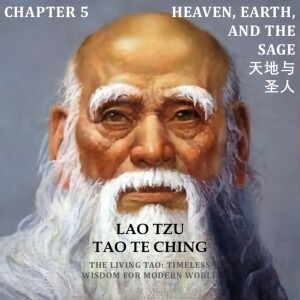
Monday Nov 11, 2024
Monday Nov 11, 2024
This Chapter is an excerpt from Chapter 5 of the Tao Te Ching, focusing on the concepts of Heaven, Earth, and the Sage. It explores the seemingly indifferent nature of Heaven and Earth, comparing their treatment of all beings to that of sacrificial animals. The text argues that this apparent unkindness isn't malevolence but a natural process, emphasizing the importance of "Wu Wei" (non-action) and moderation in achieving harmony. The chapter concludes by advocating for balance in one's actions and thoughts to cultivate inner peace and well-being, using the analogy of maintaining the five vital essences within the body.
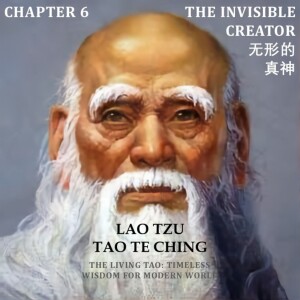
Monday Nov 11, 2024
Monday Nov 11, 2024
The Chapter from the Tao Te Ching, Chapter 6, discuss the "Invisible Creator," a fundamental force underlying the universe. This primordial entity, described as the "Mother of All Things," is both immaterial and inexhaustible, the source and ultimate destination of all existence. Its nature is profoundly mysterious and beyond human comprehension, yet its influence pervades everything. The text emphasizes this force's eternal presence and its crucial role in creation and cyclical processes.
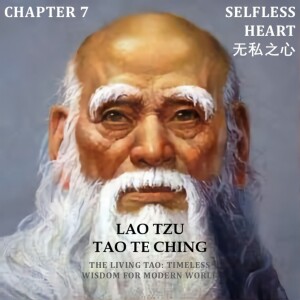
Monday Nov 11, 2024
Monday Nov 11, 2024
This Chapter presents Chapter 7 of the Tao Te Ching, titled "Selfless Heart," exploring the concept of selflessness as a path to longevity and greatness. The chapter uses the enduring nature of Heaven and Earth as a metaphor, illustrating how prioritizing others' needs, rather than one's own, leads to lasting impact. Lao Tzu argues that by foregoing self-interest, a sage achieves true fulfillment and lasting legacy. The text contrasts a seemingly self-sacrificial approach with the ultimate achievement of personal transcendence and lasting influence. This selfless act achieves a paradoxical result: genuine personal success. The excerpt emphasizes the importance of selfless action in achieving enduring influence and spiritual liberation.
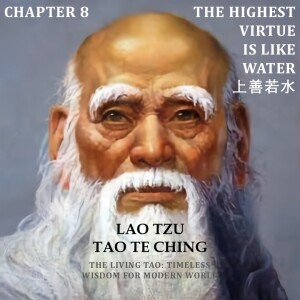
Monday Nov 11, 2024
Monday Nov 11, 2024
The Chapter presents an interpretation of Chapter 8 of the Tao Te Ching, focusing on the concept of "highest virtue" as exemplified by water. It explains that water's virtue lies in its ability to benefit all things without contention, adapting to various circumstances, and acting in accordance with natural order. The analogy uses water's qualities – humility, tranquility, benevolence, and adaptability – to illustrate the path towards achieving harmony and avoiding conflict. This interpretation emphasizes living in accordance with the Tao through emulating water's characteristics. The author uses various examples from nature to support the described principles.
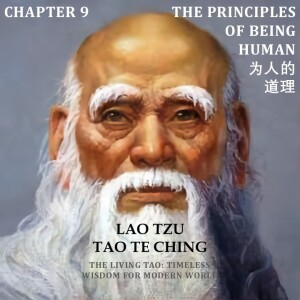
Monday Nov 11, 2024
Monday Nov 11, 2024
This Chapter presents excerpts from Chapter 9 of the Tao Te Ching, focusing on the principles of virtuous living. It emphasizes the importance of humility and knowing when to stop, contrasting the fleeting nature of material wealth and worldly success with the enduring value of inner cultivation. The chapter warns against arrogance and pride, highlighting how these traits lead to downfall, while advocating for a balanced approach that embraces moderation and timely withdrawal. Ultimately, the text promotes aligning oneself with the natural Tao through self-awareness and restraint. The core message centers on the wisdom of contentment and recognizing the limitations of external achievements.

The Living Tao
Welcome to The Living Tao: Timeless Wisdom for the Modern World—your guide to living a life of balance, wisdom, and inner peace. Inspired by the profound teachings of ancient masters, this podcast explores the enduring relevance of these timeless insights in today’s fast-paced world.
Taoist teachings emphasize living in harmony with the natural flow of life—the Tao, or "the Way." This philosophy invites us to embrace simplicity, cultivate humility, and find peace by aligning ourselves with the rhythms of the universe. At its heart, Taoism encourages us to let go of resistance, shed the distractions of ego, and discover the profound serenity that comes from living authentically and in tune with our true nature.
The Tao Te Ching, attributed to Laozi, is one of the most influential texts in Taoism and serves as a cornerstone of our discussions. Its poetic verses guide us to reflect on themes like balance, self-awareness, and effortless action, or wu wei. These teachings are not bound by time or culture—they resonate just as powerfully today, offering insights that help us navigate the complexities of modern life with grace and equanimity.
Each episode of The Living Tao will uncover practical wisdom rooted in these ancient teachings, presenting it in ways that are both accessible and transformative. Whether it's understanding the art of stillness in a world of constant movement, finding clarity amid chaos, or exploring the paradoxes of strength through softness, you’ll discover tools and perspectives to enrich your life and deepen your connection to the world around you.
Whether you're a seasoned practitioner familiar with the Taoist path or a newcomer drawn to its gentle yet profound philosophy, this podcast offers something for everyone. Together, we'll explore how these age-old principles can help us embrace change, cultivate mindfulness, and find a sense of purpose and inner peace in the face of life's challenges.
Join us on this journey of self-discovery, as we bring the wisdom of the Tao into the present moment. Let the timeless truths of this ancient tradition inspire and empower you to live a more harmonious and enlightened life. Tune in, reflect, and allow the teachings of The Living Tao to guide you back to the essence of who you are.








